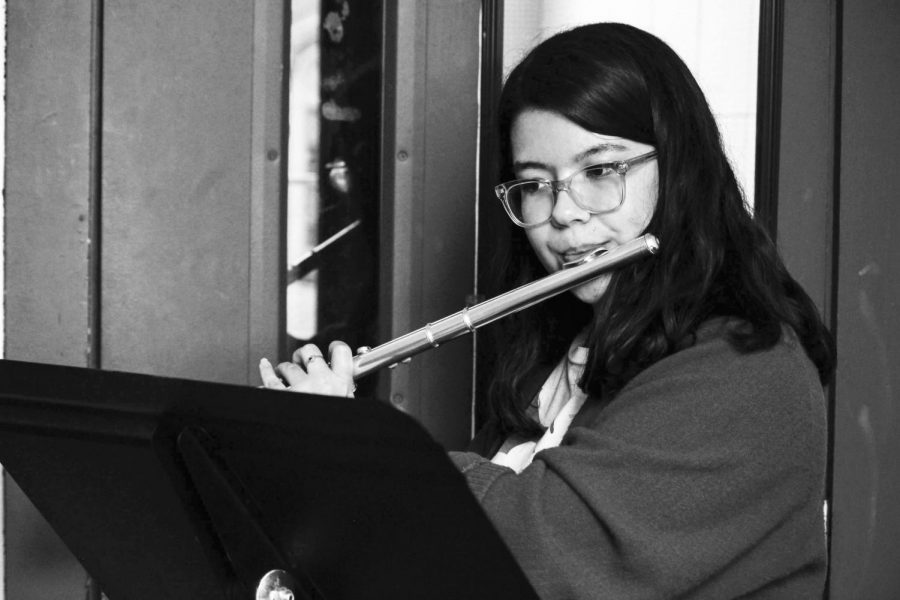University implements new popular-music minor
October 28, 2019
One of Oregon State’s newest hidden gems is the popular-music minor.
Only requiring 27 credits, it may seem minute compared to other more extensive minors, but the rich histories, connections, and resources Bob Sentelli, university director of Popular Music and Performing Arts, provides for the students, puts OSU on the map. In fact, Oregon State is one of just 25 schools in the nation initiated into the Grammy Museum Affiliation, back in 2014.
According to Dana Reason, Ph.D, coordinator of Contemporary Music and Research, she saw a lack of offerings in popular music on and off campus and in the music education department.
“I noticed that a lot of the students want to learn about music, and they’re really interested in culturally-relevant music that speaks to them,” Reason says. “So offering these diversified options in the kind of music they love and identify with will help them have a voice when they come to college.”
Reason is a piano pianist, composer and musicologist who plays, composes and performs all types of music, including jazz. Santelli, who teaches a variety of classes included in the minor, has had a long life of success in the music industry as well. He was the executive director of the Grammy Museum in Los Angeles, journalist for the Rolling Stone, a published author, curator of the Rock and Roll Hall of Fame, and that’s just to list a few accomplishments.
He is often asked about his decision to come to Oregon State, to which he has a number of reasons, one being he always considered himself an educator and mentor for young talent. His daughter also attended OSU, which is when he learned to fall in love with the Pacific Northwest landscape. For him, it was a welcomed change from New York City and New Jersey, where he used to live.
Oregon State’s exceptional music program and trajectory for success is what led to the university being voted into the Grammy Affiliation, right up next to the Ivy Leagues.
Lloyd McNemar, a first-year English major, said he ended up taking the class by accident.
“This is quite the story actually, because I was planning on dropping this class the first day. I’m an English major and I need two years of language, but this is the one class I had a placement holder for, and after the first day, I was hooked,” McNemar said.
The classes follow a set progression, starting with American Music, which Santelli teaches in the fall. American Music is followed by music business one and two and so forth.There is no prior music experience needed to join these courses. They are simply informative and made to spark interest in students within the field of music, including aspects of production, business and art.
Santelli also hosts small offshoots of the minor such as the Album Club. Once a month, students get together and listen to an album and discuss its significance of the message, the sound and methodism.
Samhita Meghashyam, a third-year psychology student who transferred from Portland Community College, said she took this class to learn more about what American music is.
“My Mom and Grandma are singers and I’m very passionate about Indian music, but I took this class because I have no idea about American music. The first thing I thought of was just country and hip hop.”
Reason and Santelli’s classes are more than just the descriptions online. They’re interactive and beyond what is expected out of music classes because of their personal backgrounds in the industry, and the deeper understandings they share.
“Even though these are the early stages, we got the necessary building blocks in place so that we can grow the concept, the minor degree and start attracting students, almost solely because we offer popular-music studies,” Santelli said. “That’s our goal, and I think we’re on a good track now, and we need to tell people about it.”
Reason and Santelli said that they hope to see the minor flourish in the next handful of years, and begin to attract students from all over the state and country to be a part of such a special, one of a kind program.
























































































































